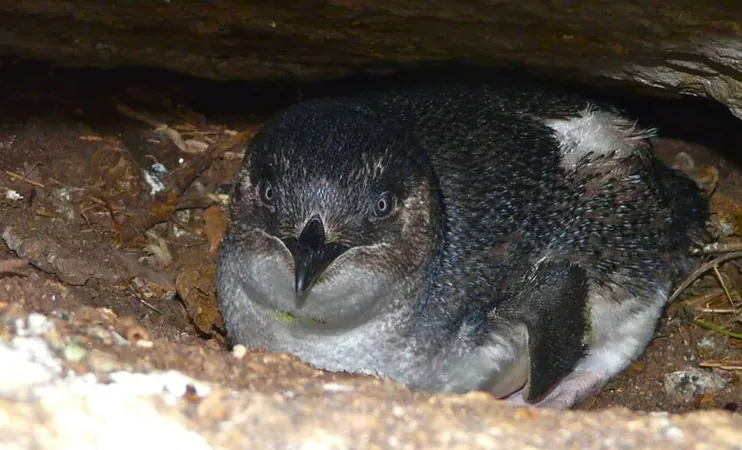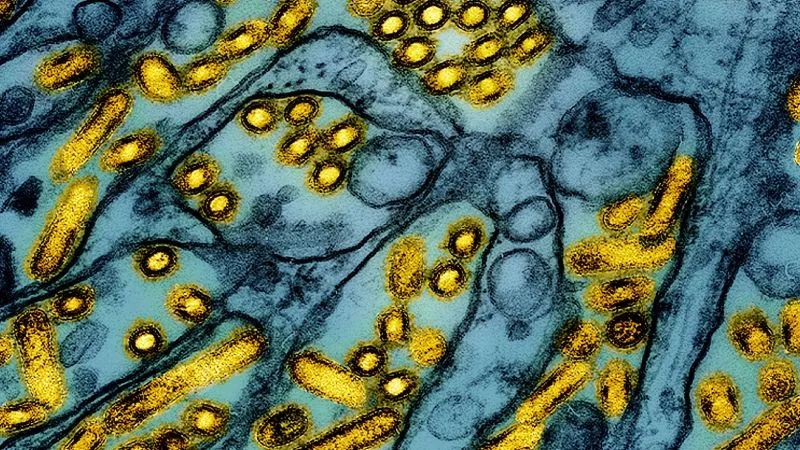
Urgent Warning: Granite Island’s Little Penguins Face Imminent Extinction Due to Human Activities
2024-12-27
Author: Ken Lee
Urgent Warning: Granite Island’s Little Penguins Face Imminent Extinction Due to Human Activities
The once-thriving little penguin colony on Granite Island, located off the coast of South Australia, is teetering on the brink of extinction. Scientists are urgently calling for action, stating that human activities are driving these charming creatures toward the edge of survival. This is not merely a conservation challenge; it’s a wake-up call for humanity to fundamentally reassess our impact on wildlife and ecosystems.
A Grim Situation on Granite Island
Granite Island, historically home to a vibrant population of little penguins, has seen their numbers plummet from around 1,600 adult penguins just two decades ago to a shocking 30 today. This drastic decline can be attributed to a troubling combination of urban development, booming tourism, and predation from introduced species.
- **Tourism Pressure**: The island welcomes approximately 800,000 visitors each year, many of whom inadvertently disturb critical nesting sites.
- **Predation Threats**: Native and introduced species, including foxes and seals, pose significant threats to the penguin population, further destabilizing their already precarious existence.
These pressures have not only pushed the population to the brink — they are also causing stress among the penguins. As Dr. Diane Colombelli-Négrel from Flinders University explains, “When humans are nearby, penguins can act bolder, but this boldness is a clear indicator of stress, not confidence.”
The Misleading Nature of Boldness
Research from Flinders University highlights a troubling trend: bold behavior among these penguins often means increased stress levels, which can negatively impact their reproductive success. Contrary to what one might assume, this exhibition of fearlessness does not correlate with healthier breeding practices. The pressure on their mental and physical health remains high, indicating a deeper crisis at play.
Rethinking Our Conservation Strategies
The drastic decline of the little penguin population is a stark reminder that current conservation strategies are failing. A fundamental rethinking of how we manage human-wildlife interactions is urgently needed:
- **Restrict Human Access**: Creating safe zones where penguins can nest and raise their young without interference from tourists and human activities is essential.
- **Enhance Predator Control**: Immediate focus should lie on protecting the penguins from both native predators, such as sea eagles, and introduced species, including foxes.
- **Revise Tourism Practices**: There is an urgent need to educate visitors about the detrimental effects their presence can have on local wildlife and implement measures to limit disturbances.
A Broader Environmental Crisis
The plight of Granite Island’s little penguins serves as a microcosm of a much larger environmental crisis. Climate change is worsening the threats to biodiversity, altering fish populations and weather patterns that penguins depend on. Urban sprawl continues to encroach on wildlife habitats, placing countless species under pressure.
Moving Towards a Sustainable Future
To secure a future for the little penguins, a collective commitment to reducing human impact is essential. This challenge extends beyond saving a single species; it calls for a profound shift in how humanity interacts with nature:
- **Promote Responsible Tourism**: Visitors must be informed about their influence on local wildlife, fostering a culture of appreciation rather than disturbance.
- **Advocate for Policy Change**: Policymakers and conservation organizations must intensify their initiatives to protect and restore sustainable habitats for vulnerable species.
- **Empower Communities**: Local residents must be engaged and empowered to report threats to the penguins and advocate for protective measures.
The survival of the little penguins on Granite Island reflects a broader ecological reality: protecting them is not merely an environmental responsibility — it is a moral obligation to preserve the natural world for future generations. Every action counts. It’s time for us to act before it’s too late.



 Brasil (PT)
Brasil (PT)
 Canada (EN)
Canada (EN)
 Chile (ES)
Chile (ES)
 España (ES)
España (ES)
 France (FR)
France (FR)
 Hong Kong (EN)
Hong Kong (EN)
 Italia (IT)
Italia (IT)
 日本 (JA)
日本 (JA)
 Magyarország (HU)
Magyarország (HU)
 Norge (NO)
Norge (NO)
 Polska (PL)
Polska (PL)
 Schweiz (DE)
Schweiz (DE)
 Singapore (EN)
Singapore (EN)
 Sverige (SV)
Sverige (SV)
 Suomi (FI)
Suomi (FI)
 Türkiye (TR)
Türkiye (TR)